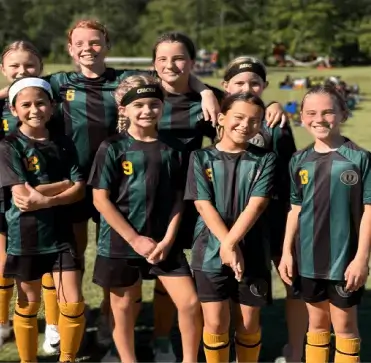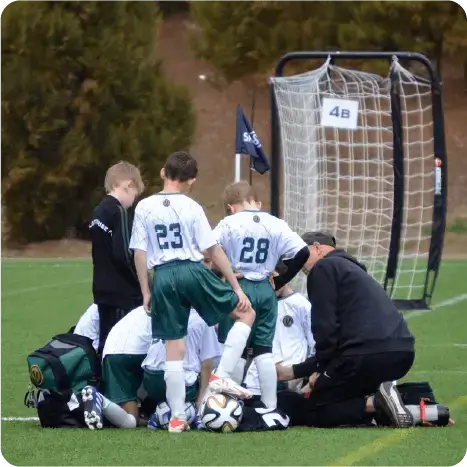Trusting the Coach, Club, and Process: Navigating Youth Sports with Wisdom

CRFC
NEWSLETTERS
NEWSLETTERS FOR OUR LATEST EVENTS
Embracing Adversity in Youth Sports
In the realm of youth sports, parents are often caught in a whirlwind of emotions and decisions. The journey through sports is undeniably filled with adversity that young athletes encounter each season. From managing playing time, dealing with injuries, and balancing other activities, to navigating the demands of a tough coach, these challenges are part and parcel of the athletic experience. Conventional wisdom suggests that facing such adversities builds character and resilience in young athletes, encapsulated in the adage, “Don’t place a period where a comma should be.”

Age-Appropriate Approaches to Sports Challenges
This wisdom is undoubtedly true, yet it is crucial to consider the age and context of the players we are applying this concept to. Parents understand this concept well but when is the line crossed? When does a parent need to help, intervene, or make a change? For younger children, it is imperative to create an environment with a low chance of adversity, focusing more on enjoyment and fundamental skill development. Conversely, high school athletes, ideally under the guidance of a well-structured and communicative program led by experienced coaches, are in a prime position to learn valuable life lessons through sports.
The Gap Between Ideals and Reality in Youth Teams
The reality often deviates from the ideal. Hindsight and good feelings at the end of the high school cycle may gloss over some serious flaws in the soccer experience. Did there really need to be that much adversity? Many teams and clubs operate in less-than-ideal environments for a host of reasons. We have all seen the problems at youth soccer clubs and teams such as carrying oversized rosters, teams led by unfriendly, egotistic coaches with poor communication skills. Issues such as clubs and coaches driven by profit motives, teams mired in politics affecting team culture, and parents exerting undue pressure are prevalent. Such environments, devoid of proper structure, planning, and ethical use of power, are unfortunately not uncommon.

A Case Study of Poor Team Management
Consider a recent incident where a club team traveled two hours for a match, bringing 19 players but only 18 could be on the bench. The club chose not to determine the traveling squad so all showed up to the game. One player, who had missed practices and forgotten their jersey, ended up taking the jersey of the teammate who was ultimately not selected to play at the coach’s behest. Incidents like these are symptomatic of deeper issues within the team and club dynamics. As a side note, what would it take on a competitive youth team for the team and parents to simply say? That is unacceptable and we will not tolerate this type of communication and treatment.
The Role of Trust in Athletic Development
Adversity indeed fosters character, but a critical element often overlooked is the necessity for players and families to trust the coach, team, and club. This trust cannot be established overnight; it must be earned through consistent actions and the cultivation of a positive culture by the club and team. Hollow words are ineffective; the magic lies in actions and direct communication.


The concept of separating coaches from parents and players might seem convenient, but it rarely fosters a healthy environment. Coaches who demonstrate honesty, consistency, and genuine care are key to building this trust. Since coaches hold significant power in these dynamics, they must wield it responsibly, always prioritizing the best interests of the child.
Prioritizing Children's Best Interests in Sports Decisions
Parents, on their part, have a challenging role. While they understand the importance of sports in developing character, this growth can only truly flourish if they believe in the coach’s intentions and actions. The fundamental question that should guide every decision in youth sports is: “What is best for the child?”
The Essence of Youth Sports: Trust and Respect for Growth
Navigating the complex world of youth sports requires more than just enduring adversity; it necessitates a foundation of trust and respect between players, parents, coaches, and clubs. Only through a collective commitment to the well-being and development of young athletes can the true potential of sports as a tool for life lessons be realized.

